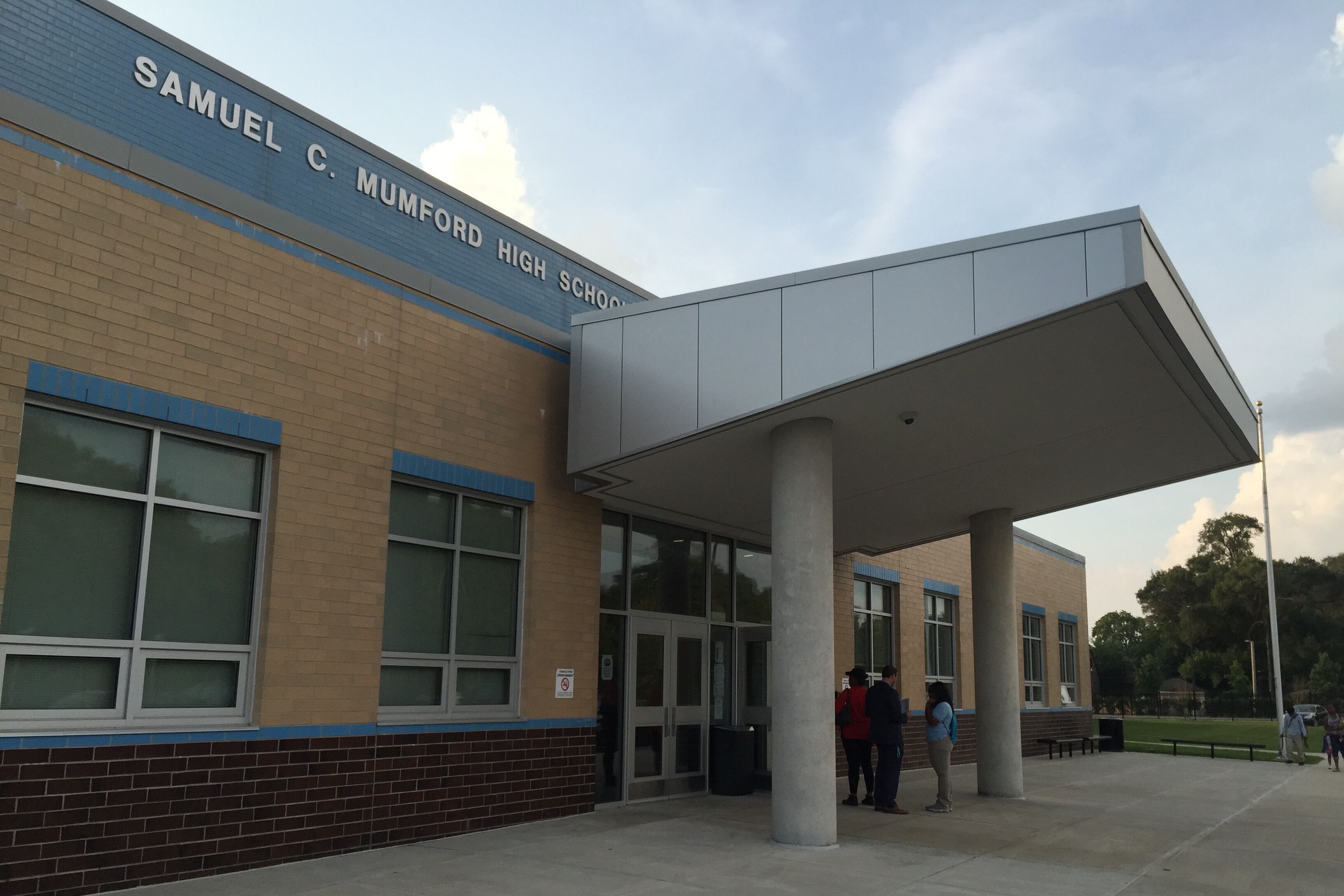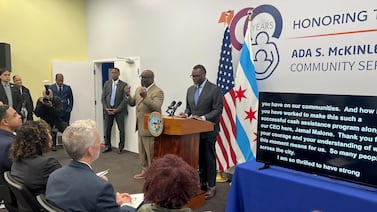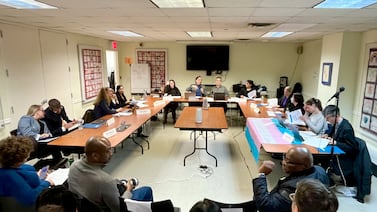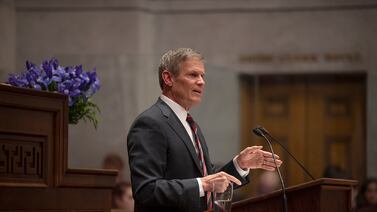Hezekiah Smith was in third grade when his teacher at Detroit’s Bagley Elementary School of Journalism and Technology left in the middle of the school year.
He and his classmates weren’t given any notice. One day Ms. McConnell was there, and the next day she wasn’t, he told Michigan lawmakers on Monday. But word soon spread about why she decided to leave.
“She left because she wasn’t being paid enough, and the principal wasn’t being nice to the teachers at that time” said Hezekiah, now a high school student at The School at Marygrove.
Another teacher in the building covered McConnell’s classroom. But losing their teacher eroded some of the trust and stability students had established with her.
“It’s important to me and my peers that we can build a relationship with our teachers,” he said.
Hezekiah was joined by over a dozen students, educators, union leaders, and parents at a special hearing Monday organized by the Michigan Senate and House Education committees to discuss teacher recruitment and retention efforts in Metro Detroit. Teacher turnover has been a critical issue for Michigan, particularly in low-income communities where students who most need stable school environments have had to deal with a revolving door at the front of the classroom.
In Detroit, charter schools, which educate nearly half of the city’s public-school students, have higher turnover rates than traditional public schools.
Those who testified Monday largely spoke in favor of increasing school aid, limiting class sizes, and raising teacher salaries to try to reduce teacher turnover.
They also spoke about the personal cost of persistent turnover in a school.
“When teachers are not being paid enough or treated right by (administrators) and leave the school, we’re left without a connection to someone who understands what we’re going through academically or even personally,” Hezekiah said.
Spanish teacher Brian Peck worked for seven years at Detroit’s Osborn High School before switching to University Prep Schools. During those seven years, Osborn went through five principals, a churn that motivated him to leave the Detroit school district.
“I’m only going to go to a place where I know that principal has been there and is going to be there,” Peck said. “I don’t want this continual carnival.”
The hearing was held not in Lansing, but at Detroit’s Mumford High School. Sen. Darrin Camilleri of Trenton, chair of the Senate Appropriations Subcommittee on PreK-12, said the point of that was to engage with community members and professionals in the field.
“When we make our decisions up in Lansing it needs to be with your voices in mind,” Camilleri said.
In the Detroit Public Schools Community District, Michigan’s largest school district, officials have worked in recent years to address teacher vacancies, most notably by increasing teacher salaries. Teacher recruitment has been a key piece of Superintendent Nikolai Vitti’s plan to turn the district around after over a decade of emergency management. By the end of emergency management in 2016, teacher vacancies were as high as 250.
But many Detroit educators and parents said attracting and retaining teachers will require more than a salary boost.
“We just want to have more voice in what we do as professionals,” said Jason Posey, vice president of the Detroit Federation of Teachers. A key concern for his union members, Posey said, was annual teacher evaluations, which have often led to educators feeling as though they “don’t have the professional freedom to teach what they believe is best.”
Many educators in recent years have called for certain factors such as students’ standardized test scores, to be removed from evaluations, claiming that those metrics don’t accurately reflect student learning in the classroom.
State Sen. Dayna Polehanki, chair of the Senate Education Committee, said a legislative package intended to address teacher evaluations is currently in the works.
DPSCD officials, who face tough budget decisions heading into the 2023-24 school year, are trying to figure out how to prioritize teacher salary increases, protect classrooms from budget cuts, and ensure the district’s future financial strength. The district is weighing cutting more than 100 jobs, most of them central office employees, as well as school-based administrators and support staff.
Perriel Pace, a junior at Detroit’s Martin Luther King Jr. Senior High School, said those looming decisions should prompt the Legislature to respond.
“We will be losing our college advisers, counselors, staff from the community engagement department all around,” Pace said. “This lack of funding affects the students completely. I’m asking that we get more funding for our schools and employees.”
Ethan Bakuli is a reporter for Chalkbeat Detroit covering Detroit Public Schools Community District. Contact Ethan at ebakuli@chalkbeat.org.








